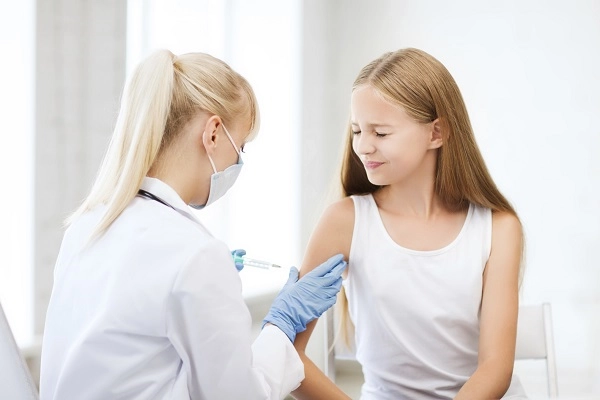HPV vaccine a lifelong defense against cancer


Every 20 minutes there is a new diagnosis of HPV, the human papillomavirus. Almost all cervical cancers, 69 percent of vulvar cancers, 75 percent of vaginal cancers, 63 percent of penile cancers, 91 percent of anal cancers and 72 percent of cancers affecting the back of the throat are linked to HPV, according to the Centers for Disease Control and Prevention (CDC).
“Getting the HPV vaccine prevents cancer,” said Michelle Rasmussen, MD, Willamette Health Partners. “Many people don’t think of immunizations as actually preventing cancer, but this does and that is why it is so important.”
All preteens ages 11 to 12 are encouraged to get this vaccination. It is a three-dose series that can begin as early as age 9. Teenagers should complete the series as soon as possible. If you have not been vaccinated and are older, catch-up vaccinations can be given to women up to age 26 and to men up to age 21.
HPV may have no symptoms for months or years
HPV is the most common sexually transmitted infection and can be transmitted without sexual contact as well. Symptoms may not appear until the infection is quite advanced and harder to treat. After a person is infected with HPV, it can take many years for cancer to develop.
“Most HPV infections go away on their own, but those that don’t go away can cause genital warts or cancer,” said Dr. Rasmussen. “Regular screening for cervical cancer allows us to detect and treat the virus before it ever turns to cancer.”
Both a Pap test (if ages 21 to 65) and HPV test (if you are 30 or older) are available and recommended for women. There is no approved screening test for HPV in men.
According to the CDC, fewer than 40 percent of eligible girls and 21 percent of eligible boys have received the vaccination. That is half the vaccination rates of other developed countries including Australia and the United Kingdom.
“It is a very safe vaccination and I encourage it for all my age-eligible patients,” said Dr. Rasmussen. “Whether your child is sexually active or not, this vaccination can prevent cervical cancer for life.”
Prevent cancer with a few simple shots
If the HPV vaccination is not already a part of your or your child’s immunization schedule, talk with your doctor or request an appointment with a Willamette Health Partners provider by calling 503-814-4400.
The Salem Cancer Institute also offers free cervical screenings in the Fall if you are a woman between the ages of 21 and 64, are uninsured or unable to afford the screening, and have not had a cervical cancer screening in the last three years. Please call 503-562-4321 for more information.